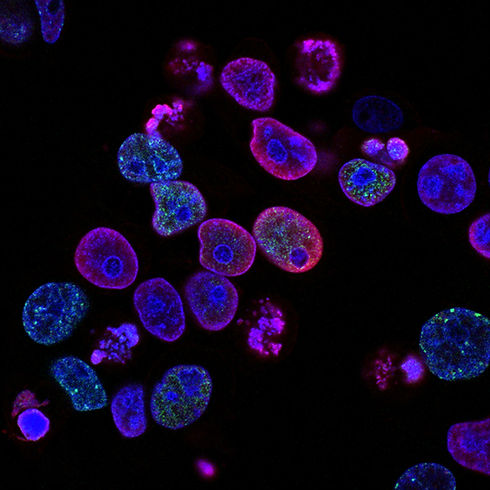Health Conditions
AHPN's health policy stance is focused on reducing health inequalities and improving health outcomes using a culturally appropriate and sensitive approach.
AHPN has broadened its strategic policy position to focus on improving the health and wellbeing of African descent and wider Black communities living in the UK. This includes influencing and advocating for policies that address interlinked health conditions holistically. This 2013 shift in emphases was founded upon AHPN members' own changing priorities locally, and resulted in the organisations name change from African HIV Policy Network to African Health Policy Network.
There are still high rates of HIV amongst African descent communities in the UK, but recent improvements to HIV treatment mean that people living with HIV can expect to live healthier and longer. But this may be coupled with a susceptibility (of people living with HIV) to other related health conditions. HIV therefore should not be addressed in isolation but holistically.
HIV and Sexual Health
Africans account for 35% of new HIV diagnoses each year in the UK. In 2010, there were 24,397 HIV diagnosed black Africans seen for HIV care in the UK. People from African communities are more likely to test and be diagnosed late than other groups.

Diabetes
African and African-Caribbean people in the UK are up to three times more likely than the general population to have Type 2 diabetes. This increased risk is generated by a range of complex and interrelated factors, including genetic, social, economic and cultural factors.

Mental Health
Black and Black British people access mental health services at a rate of 3733 per 100,000 population, compared to 2789 for all groups.
Mental health-related admission rates to hospitals were at least two times higher for Black Africans than for the rest of the UK population in 2010

Cancer
African people in the UK experience higher prevalence of some specific cancers, and poorer health outcomes in relation to cancer in many cases. British black women present on average 21 years younger than white women with breast cancer. Prostate cancer is three times more common in black men than white men.

Sickle Cell and Thalassemia
Thalassaemia and sickle cell disease are blood conditions that most commonly affect people within the black, Asian and minority ethnic communities. The treatment of these conditions is much more successful using blood that is very closely matched to the patient's. Thalassaemia mainly affects people with a South Asian or Mediterranean heritage, and sickle cell mainly affects people from the black community. It is estimated that 1,000 people in the UK have thalassaemia, and between 13,000-15,000 people in the UK have sickle cell. Patients with these disorders need regular blood transfusions to stay alive. They benefit from donations from blood donors from a similar ethnic background.

Covid-19
COVID-19 mortality for people of Black African or Black Caribbean ethnicity in the first half of this year was two to two and a half times higher than for people of White ethnicity. This is a complex pattern involving occupational risk, health inequality and economics.

Stroke
Stroke incidence rates are higher in the black than white ethnic group for both sexes. African people are twice as likely to have a stroke as compared to people of European origin.

Tuberculosis
Black Africans represent 1.8% of the population of England and Wales, yet Black African people made up around 18% of reported cases of TB in the UK, with one of the highest rates of 100 per 100,000 in the black ethnic group. There are a number of factors which can increase the risk of contracting TB including socio economic factors, HIV co-infection, stigma and completion of treatment.

Multiple Myeloma
Multiple Myeloma is a rare type of blood cancer that often has few initial symptoms but over time can progress to affect several areas of the body at once, including the spine, skull, pelvis and/or ribs. Although doctors have known for some time that Black people are more likely to develop the disease, research reveals that the message has not been conveyed within our community. Over three quarters (77%) of Black people don’t even know it exists.

Other health conditions
African descent and wider BAME communities are also disproportionately and adversely affected by other health conditions, including sickle cell anaemia and heart disease. The AHPN's research and policy focus currently is on HIV and sexual health, mental health, diabetes, cancer, tuberculosis and stroke. However, as our work develops we continue to be led by our members and community and so will develop new work streams concentrating on other health conditions.